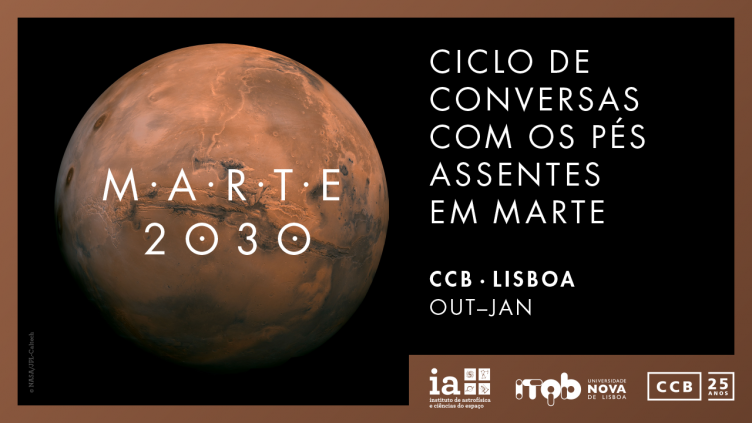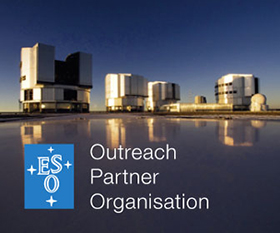Objectives
- To promote the need and relevance of staffed space missions;
- To show that science is increasingly the product of the collaboration and dialogue between different areas;
- To promote the work done in Portugal in astrophysics and space sciences and how it articulates with other sciences.
Reach
Project Mars 2030 reached about 500 people throughout its four sessions.
Learn about the events organised under the project Mars 2030.
Mars 2030 is a series of four thematic conversations, in interaction with the public, in which researchers talk about the possibilities for human beings to live on the red planet, the reasons to send humans on missions to Mars and the challenges these present. The conversations were moderated by well known science journalists.
The sessions took place at Centro Cultural de Belém, in Lisbon, between October 2018 and January 2019.
This was an opportunity to discuss the motivations that lead to the need and relevance of staffed space missions, with the example of Mars. It was also a way to show that science is increasingly the product of the collaboration and dialogue between different areas, like astrophysics and biology. It was also one of the objectives of the Mars 2030 project to promote the work done in Portugal in astrophysics and space sciences and how it articulates with other sciences.
The Mars 2030 series is a co-production of the Instituto de Astrofísica e Ciências do Espaço (IA), Instituto de Tecnologia Química e Biológica António Xavier da Universidade Nova de Lisboa (ITQB-NOVA) and Centro Cultural de Belém (CCB).
Share
Scope:
National
Coordination:
João Retrê (Instituto de Astrofísica e Ciências do Espaço)
Joana Lobo Antunes (Instituto de Tecnologia Química e Biológica António Xavier da Universidade Nova de Lisboa)
Partners:
Instituto de Tecnologia Química e Biológica António Xavier da Universidade Nova de Lisboa (ITQB-NOVA)
Centro Cultural de Belém (CCB)


